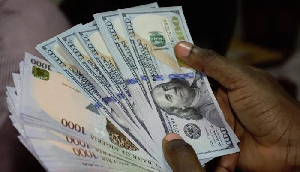The naira rose against the US dollar in the foreign exchange (FX) market as liquidity balances in the currency market overshadowed demand pressure.
Spot FX data from the FMDQ platform showed the naira appreciated by 3.20%, closing at ₦1,601.20 per US dollar at the official market.
The significant daily improvement in the exchange rate happened due to the slowdown ahead of seasonal requests for FX-related transactions by importers. Exchange rate recalibration has been intermittent, though some analysts maintained a positive outlook on exchange for 2024.
While the naira is falling, the monetary policy authority has been growing the external reserves. Data from the Central Bank of Nigeria (CBN) revealed that the gross balance in the external reserves climbed to $39.20 billion this week.
According to analysts, this is the highest level seen in the last 28 months. Records showed that Nigeria’s gross external reserves were last seen at $39.219 billion in July 2022. FX inflow into the economy has been consistent as foreign portfolio investors continue to take huge bets in financial markets.
Also, the Naira gained N6 to settle at ₦1,739 to the US dollar in the parallel market as demand pressures eased in the informal currency market. In the commodities market, crude oil prices experienced a 1% decline marked by volatility, primarily due to fears that sluggish economic growth in Europe might dampen energy consumption.
Analysts noted that the uncertainty, compounded by ongoing tensions in the Middle East, has kept traders cautious as the U.S. presidential election approaches. Brent crude traded around $74.22, while WTI has decreased to $70.01.
In contrast, gold prices have increased by approximately 1% to $2,747.80 per ounce, nearing their all-time highs, driven by safe-haven demand in light of ongoing geopolitical concerns.
Business News of Saturday, 26 October 2024
Source: dmarketforces.com

















